RYE LANE (2023)
Two young adults reeling from bad breakups connect over an eventful day in south London.
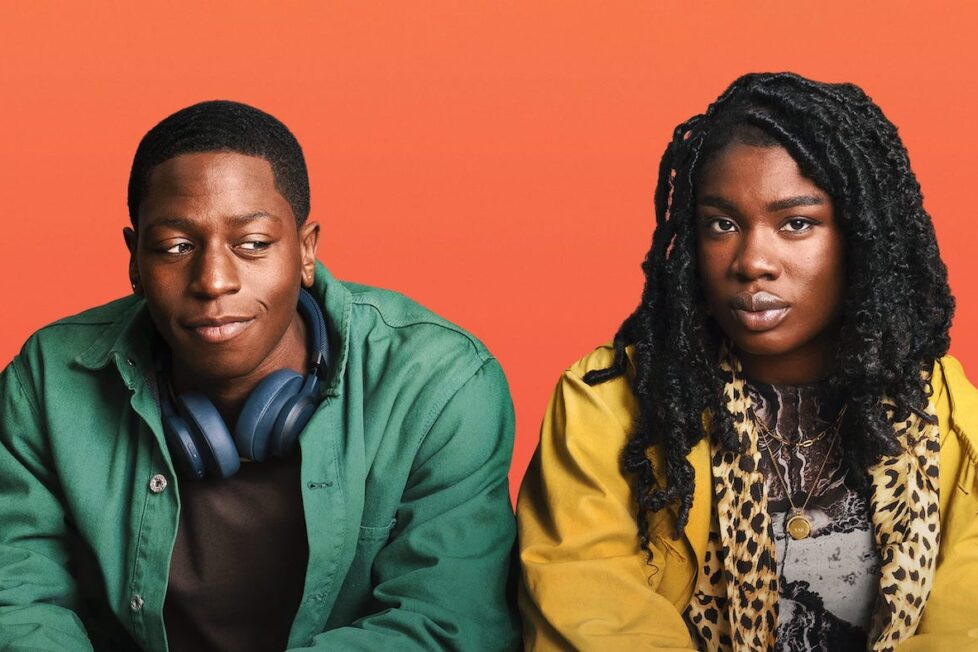
Two young adults reeling from bad breakups connect over an eventful day in south London.


Raine Allen-Miller’s feature debut Rye Lane is a rom-com that’s low on saccharine but contains real sweetness, a few laugh-out-loud moments, and plenty more that’ll provoke a wry (rye?) grin. The narrative trajectory is obvious as it strictly adheres to the traditional formula of “boy meets girl, boy loses girl, boy gets girl back again”, but that doesn’t matter. The joy’s in the witty observations of modern British life and the well-judged performances, which are simultaneously funny and credible.
The setting is south London (Rye Lane is a major road running through the Peckham district) in the present day. Very much in modern times, in fact, for this is a film where Tinder, the vinyl revival, and tediously edgy art galleries play a large role. It opens on one of those aforementioned galleries, with an overhead shot revealing the inhabitants of several cubicles in a unisex toilet, not all of them engaged in the intended activities… as in the last of these unglamorous spaces sits Dom (David Jonsson), crying.
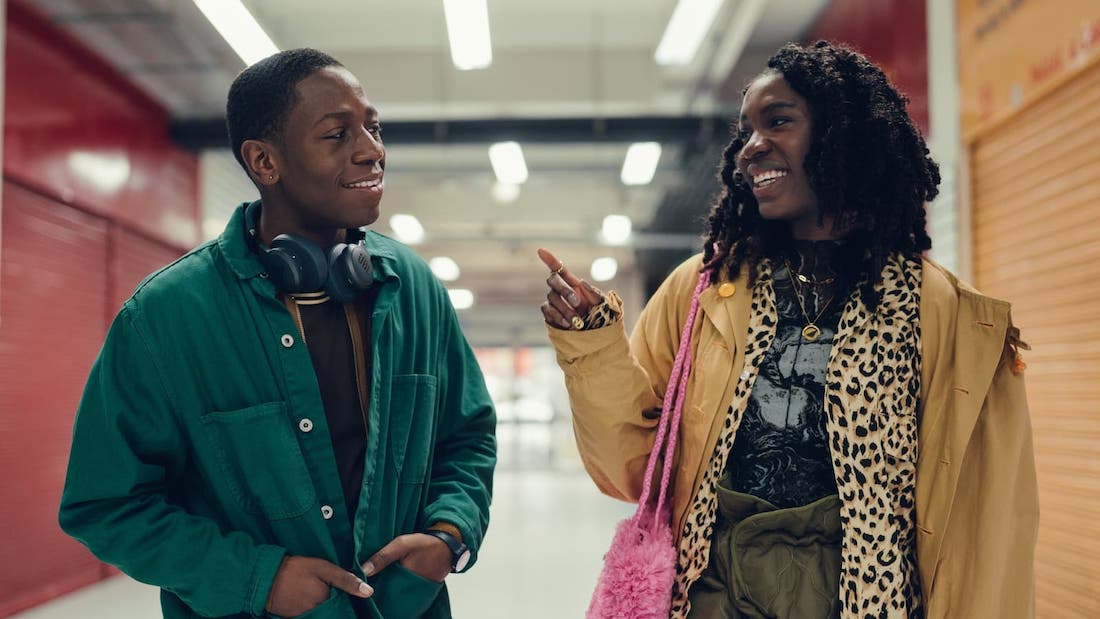
Yas (Vivian Oparah) speaks briefly to Dom through the door and later, back in the gallery, recognises him solely by his pink shoes. ‘Meet-cute’ accomplished and the pair discover they’ve both recently broken up with their partners; in Dom’s case after his girlfriend, Gia (Karene Peter), inadvertently sent him a video with another man’s penis in the background.
Despite this, Dom’s heading for lunch with Gia and her new boyfriend Eric (Benjamin Sarpong-Broni) in hopes of becoming just good friends. Yas, meanwhile, is anxious to recover an LP from her ex, Jules (Malcolm Atabroh). Inevitably the two become involved in each others’ ex-related machinations, and inevitably their own relationship blooms.
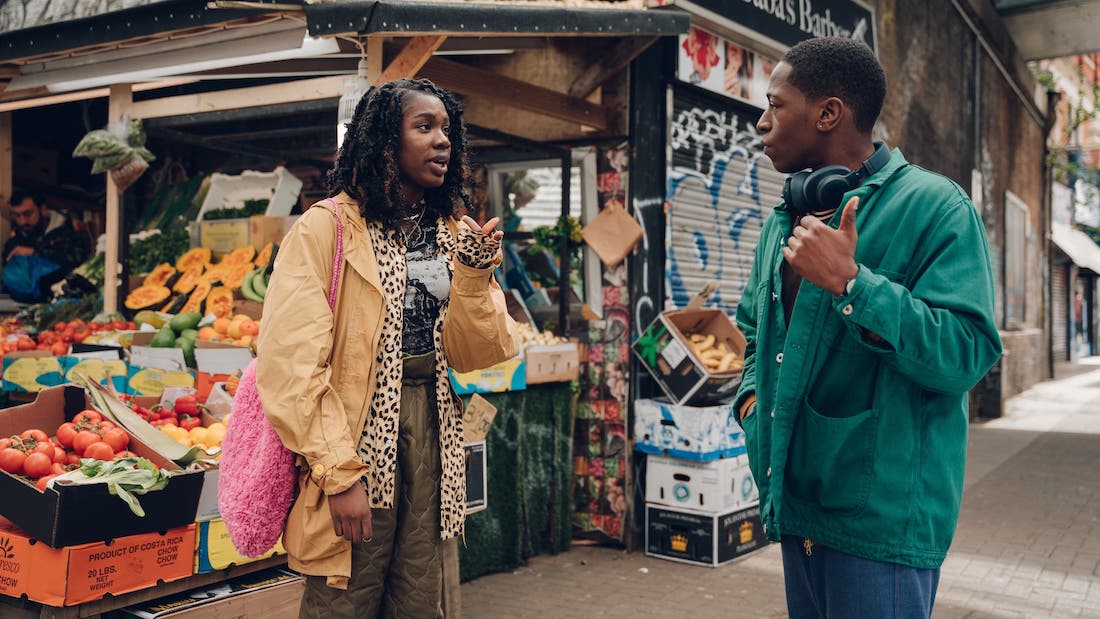
The screenwriters, Nathan Bryon and Tom Melia, come from television backgrounds and it shows both in the efficiency of the plotting (though absolute realism isn’t the goal, even the more absurdist moments don’t feel ridiculously far-fetched), and in the sharp scripting of individual scenes.
Notable among these is the lunch between Gia and Eric on one side of the table, and Dom and an uninvited Yas on the other; the underlying character dynamics are utterly true-to-life, but the way they’re expressed is pushed deep into comedic territory without going too far. Sarpong-Broni as Eric, relentlessly affable and completely thoughtless if well-meaning, stands out particularly here.
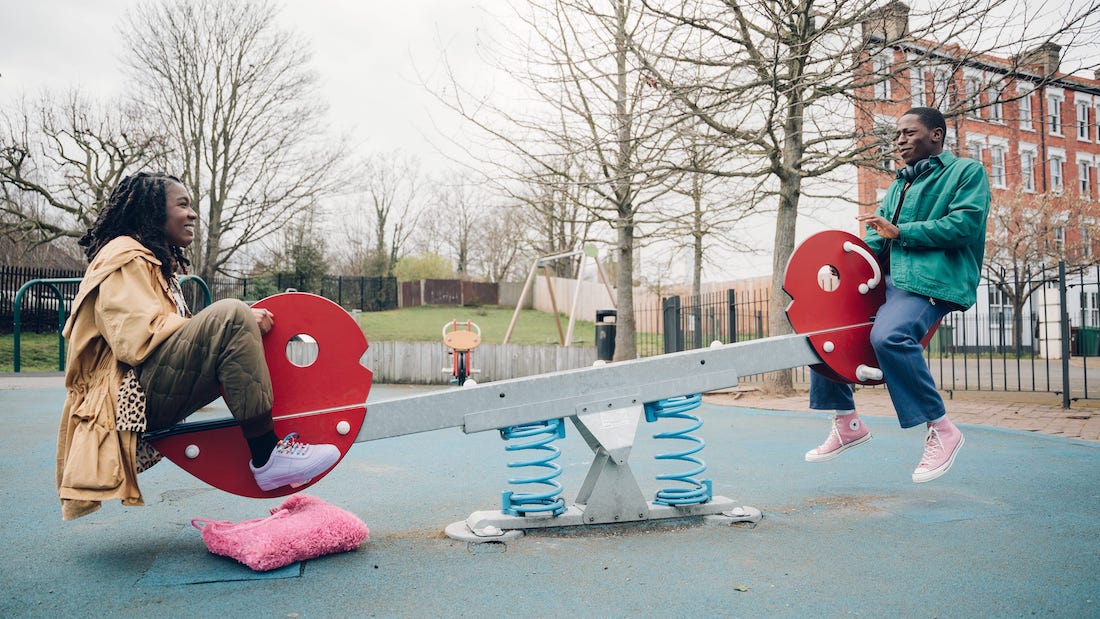
In a karaoke sequence, the personal harmony between Yas and Dom is—in a time-honoured fashion—made manifest in music. But again, while the focus is on the leads, a more minor character is given a chance to shine: Omari Douglas as the host Mona. And in two separate sections in the art gallery itself, yet another member of the supporting cast is called upon to add the kind of parodical humour that can’t be applied to the sympathetic protagonists; in this case, it’s the photographer, Nathan (Simon Manyonda), who specialises in close-ups of body parts and likes to talk about them in terms of cosmic grandeur.
Colin Firth also appears in a tiny role, serving at a taco stand called Love Guac’tually, as does the reggae performer, sauce entrepreneur, and TV chef known for his debut on Dragons’ Den Levi Roots. But cameos like these never distract from the attention Rye Lane pays to Oparah and Jonsson, and both actors’ nuanced performances deserve it.
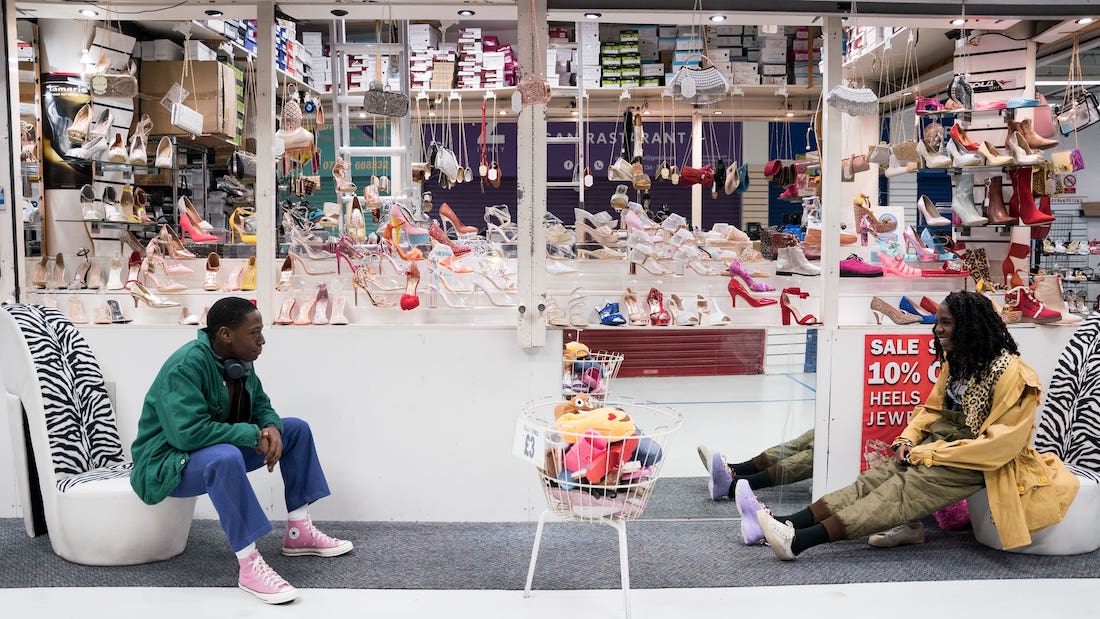
There’s more to them than meets the eye. Jonsson’s Dom, for example, might seem a bit of a nerd at first, content in his accountancy career and un-woke assumption the gender-neutral toilet is for men only. Oparah’s Yas, who wants to be a costume designer, might seem the brighter spark of the two. But in many ways, Dom’s equally passionate and more confident, while her extroversion may be something of a self-protective act.
A third major part, perhaps unsurprisingly given the title, is played by the locale. South London gets far less cinematic attention than the north side of the Thames—which features in Rye Lane only briefly during the obligatory big romantic finale—but Allen-Miller and cinematographer Olan Collardy revel in it. They don’t go out of their way to pick conspicuously picturesque locations (this is a film about ordinary people living ordinary lives, after all), but every scene is full of vibrant detail and incidental activity, heightened by Collardy’s vivid colours.
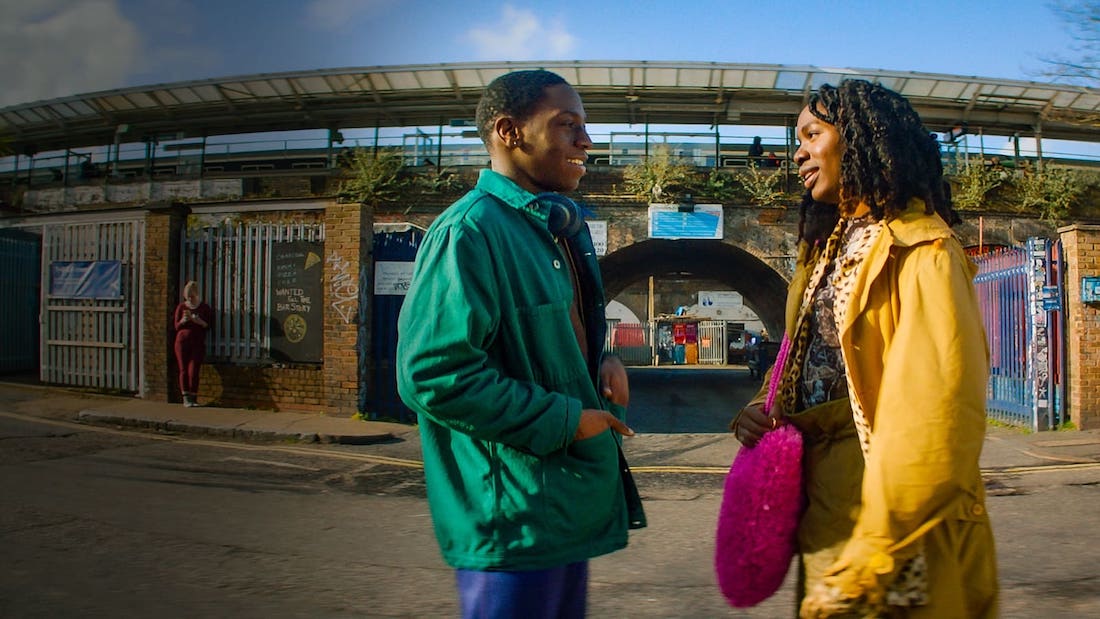
A strikingly effective, not over-assertive original score composed by the south London musician Kwes is complemented, meanwhile, by an eclectic collection of tracks from artists local (Stormzy, Sampha) and not so local (for example Bette Midler’s “The Rose”).
Rye Lane is a thoroughly old-fashioned rom-com in structure, but a thoroughly modern one in terms of character, milieu, and mise-en-scène. That’s why it works so well. Audiences can relate not only to the fundamental emotional story but also to the often hilarious particulars of contemporary urban life.
It may not set its sights particularly high, but what it aims to do it does almost perfectly. And it’s one of those rare movies where a few more minutes would have actually been welcome.
UK | 2023 | 82 MINUTES | 2.39:1 | COLOUR | ENGLISH

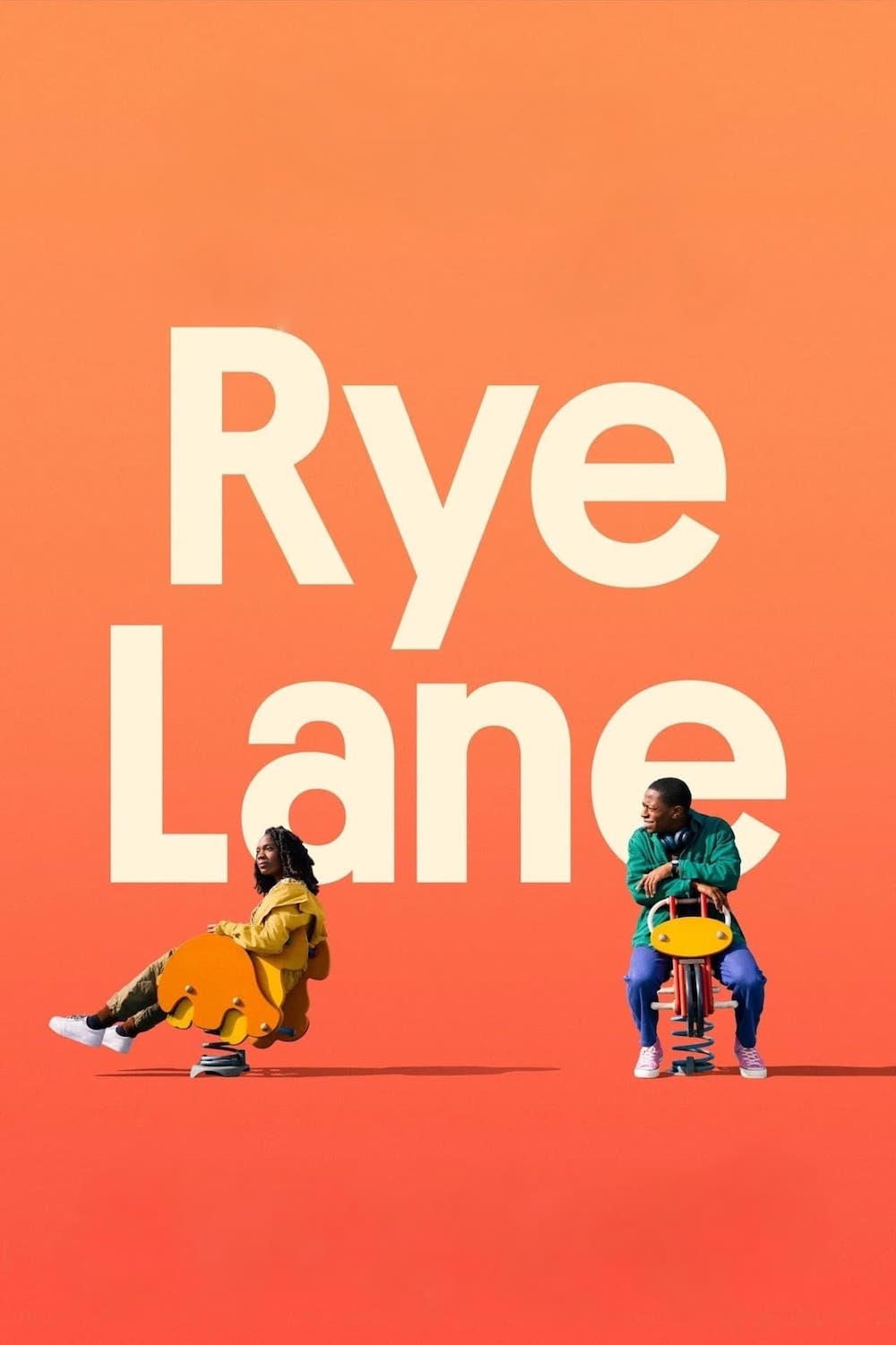
director: Raine Allen-Miller.
writers: Nathan Bryon & Tom Melia.
starring: David Jonsson, Vivian Oparah, Karene Peter & Benjamin Sarpong-Broni.
